AfCPA Keynote Speakers
Below is the virtual program that will be broadcast through the internet. All times listed are GMT (Greenwich Mean Time). All talks will be recorded and made available to registrants through this website through February 2021.
Dr. Yemi Akinbamijo is the Executive Director of FARA and Dr. Akinbamijo, a Nigerian national, has spent the past 34 years of his career in Africa and Europe working in International Agriculture, food security and Rural Development domains. Prior to his appointment as Executive Director of FARA, he was the Head of Division of the Agriculture and Food Security Division at the African Union Commission Headquarters in Addis Ababa, Ethiopia. Before then, he served as the Director of the AU Inter-African Phytosanitary Council based in Yaoundé Cameroon. Dr Akinbamijo spent the early years of his career working as a hands-on scientist on crop-livestock integrated systems research at Wageningen University, University of Edinburgh and the West African Livestock Innovation Centre, The Gambia. Dr. Akinbamijo is a noted strategic thinker, an effective communicator and a consummate networker who is solidly plugged into an extensive community of stakeholders in Africa’s agricultural research and rural development. He is very passionate about processes for translation of research outcomes into livelihood impacts.
Dr. Akinbamijo has published several scientific papers and articles and had served in several international panels including Chair of the West African Livestock Innovation Centre (WALIC) -former International Trypanotolerance Center; Continental Working Group on Sanitary and Phytosanitary Issues; Africa-EU Joint Expert Group; Africa-Brazil on Agriculture and Food Security; Africa-Arab Joint Action on Food Security and Agriculture; Steering Committee on African Growth and Development and a host of others. He holds a PhD in Agriculture and Environmental Sciences with specialization on Tropical Animal production from Wageningen University. He is widely published in various agricultural disciplines. He is a former editor of the Bulletin of Animal Health and Production in Africa (Peer-review Journal) and lead author of the book Advances in crop-livestock integration in West African cities.
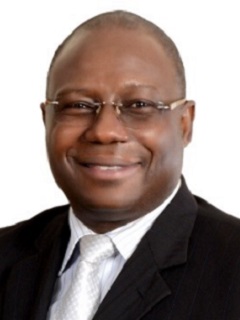
The African continent is at the dawn of the Fourth Industrial Revolution (4IR) with significant challenges around inclusivity. The concept of the 4-IR will imply the deployment of technologies at unprecedented scale at a time when sustainable production underscores the need to produce twice as much with half the resources. For Africa, Precision Agriculture (PA) as a modern technology, represents a sustainable approach that will help farmers to manage their resources and increase productivity through such instruments as crop monitoring techniques, anticipation of postharvest losses, geospatial measurement and satellite/multi spectral imageries. With advances in Artificial Intelligence (AI), progress in PA has brought to smallholder farms, robotics, precision applications of inputs of fertilizer pesticides and seats etc. Africa is richly endowed, but the resources are finite and grossly underutilized. The African agro-ecology resources provide livelihoods for more than 70% of the population agriculture in Africa that are in smallholder-based subsistence systems and largely rainfed. Optimizing the African agricultural resources will benefit from Precision agriculture practices and principles especially in the present context, with the COVID-19 scourge and climate change with unabating grave impact on livelihoods and productivity. This paper examines what options exist for markets, desert farming, digitalization, mechanization and artificial intelligence-based alerts and early warning systems in agriculture, within the context of African Agricultural Research for Development (AR4D). In addition, the paper considers the direct impacts of drones in the context of development. The current exigencies make the application of PA indispensable for the acceleration of productivity given the timeframes of the Sustainable Development Goals, African Union (AU) Agenda 2063, the AU Science Technology, and Innovation Strategy for Africa (STISA). While PA works for smallholder farmers across that continent, challenges in its deployment must be confronted through multi-stakeholder concerted efforts that seek to raise the productivity of the African small and medium enterprise-based production systems. This is advanced and advocated for in the context of the Science Agenda for Agriculture in Africa (S3A), the technical framework for attaining Comprehensive Africa Agriculture Development Programme (CAADP) Goals. In conclusion increased investment in Research and Development (R&D) for appropriate technologies is imperative for growth to happen in African agriculture and its economies.
Dr. Nakalembe is an Assistant Research Professor at the University of Maryland. She is the NASA Harvest Africa Program Director, a member of the NASA SERVIR Applied Sciences Team and serves as the Agriculture and Food Security Thematic Lead. Catherine has broad research interests ranging from agriculture remote sensing, food security monitoring to climate change, and supports several capacity-building in the use of remote sensing for agriculture monitoring and research.
She is a 2020 Africa Food Prize Laureate for her dedication to improving the lives of smallholder farmers by using satellite technology to harness data to guide agricultural decision-making. Her work in this area has helped prevent potentially disastrous impacts of crop failure. Her efforts have also promoted the formulation of policies and programs that are directly impacting farmers against the impacts of food failure. Dr. Nakalembe was a 2020 UMD Research Excellence Honoree and in 2019 was a recipient of the Inaugural GEO Individual Excellence Award. She was featured in the 2020 Women and GIS, Volume 2: Stars of Spatial Science ESRI Press book.
Catherine’s work led to the development and establishment of food security and crop monitoring bulletins that integrate satellite data including the Tanzania National Food Security Bulletin, the Uganda National Integrated Early Warning Bulletin, Kenya, Rwanda Crop Monitor reports, and the Eastern Africa Crop Monitor as well as designing the trigger mechanism of the disaster risk financing program in Uganda that has supported over 300,000 households in the region. She has broad interests ranging from agriculture remote sensing, food security to climate change and supports several capacity bundling activities, including working with Universities and supporting the Group on Earth Observations Global Agricultural Monitoring Initiative (GEOGLAM). Catherine pioneered the repurposing of drones from agricultural monitoring, mapping refugee resettlements for climate resilience in Uganda.

Food security is one of the most pressing issues faced by many African countries today. 2019 brought further shocks and setbacks to crop production across Africa. Farmers in East Africa, for example, faced more devastating floods, the most severe (and still ongoing) desert locust infestation in 70 years, and of course the COVID-19 pandemic, which has affected every sector and every food system and has brought global food security into the limelight. In 2019, food insecurity already affected nearly 690 million people globally, and more than 100 million people were projected to become food insecurity by the end of 2020.
In Sub-Saharan Africa, agricultural system shocks in coming years will continue to have severe impacts on the food security of smallholder farmers. Analyzing the nature and extent of these impacts and assessing their significance on livelihoods are important in planning responses and mitigation efforts, but these can become overwhelming tasks with only conventional capabilities like on-the-ground observations and surveys of farmers. Satellite-based Earth observations (EO), which provide crucial information about crops in near-real time, can play a vital role in supplementing such capabilities, enabling earlier warnings of disasters and supporting response programs involving risk financing and other measures that reduce food insecurity. Dr. Nakalembe’s talk gives an overview of the efforts to address food insecurity using EO under the NASA Harvest, NASA’s agriculture and food security program.
Prof. Lowenberg-DeBoer is the Elizabeth Creak Chair in Agri-Tech Applied Economics at Harper Adams University, Newport, Shropshire, UK, and is co-editor of the journal Precision Agriculture. His research focuses on the economics of agricultural technology, especially precision agriculture and agricultural robotics. He has published 84 articles in refereed journals, two books and chapters in six other books. Lowenberg-DeBoer’s research and extension work is founded in hands-on experience in agriculture. He farmed in Iowa in the 1970s producing lamb, wool, alfalfa and other forages. Since 1993 he has owned and managed 200 hectares of Iowa corn and soybean land.
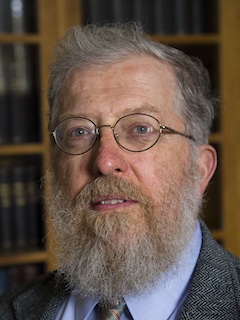
- Adoption of precision agriculture (PA) around the world has been uneven. Some PA technologies have been the most rapidly adopted agricultural technologies in history and others have lagged. Among the disappointments is variable rate fertilizer, which was among the first PA technologies, but has become standard practice only for some farming niches.
- PA is a tool box – Farmers take the tools that they need and leave the rest. For example, in countries with mechanized agriculture, many farmers take the global navigation satellite systems (GNSS) guidance but are very selective about the rest.
- PA Adoption (like the economics of PA) is site specific. Very few PA technologies are profitable everywhere. For example, GNSS guidance is widely adopted on mechanized grain and oilseed farms everywhere, but not often used on grazing based hill farms in the UK or on small manually operated farms in the developing world.
- PA tools are more likely to fit what farmers need if there is local development and adaptation. Who will develop PA technologies for Africa? Autosteer was developed in Australia and fits perfectly to agricultural systems that are similar to farming in Australia. Much of the world's PA technology for intensive grazing came from New Zealand where intensive grazing is a key sector of agriculture. Milking robots were developed in northern Europe and are still most widely used on small and medium sized farms that are typical there.
Andre Bationo holds a Ph.D. in soil chemistry and Fertility from Laval University, Canada. He previously served as Director – West Africa for AGRA. Before that, he was Coordinator of the African Network for Soil Biology and Fertility (AfNet) at CIAT’s Tropical Soil Biology and Fertility Institute. He worked as Principal Soil Scientist seconded by IFDC to ICRISAT. Bationo’s research has focused on developing technologies that increase agricultural productivity while conserving natural resources. His research has contributed immensely to understanding soil fertility issues in Sub-Saharan Africa. Key themes addressed include nitrogen and phosphorus dynamics in Sahelian ecosystems, soil organic carbon dynamics, crop residue management, improving nutrient use efficiency and synergy between organic and inorganic plant nutrients, water management, use of rock phosphate, crop-livestock integration, and crop integration systems. Bationo has published 350 refereed journal articles, 10 books, and numerous book chapters. Awards include the UNESCO-Equatorial Guinea International prize for outstanding research in life sciences; Kwame Nkrumah continental award from African Head of States for outstanding achievements in science and technology; International Award from the International Fertilizer Association; Honorary Causa doctorate from the University of Uppsala, Sweden; and Highest Civilian Award from the Government of Niger for developing soil fertility restoration technologies.
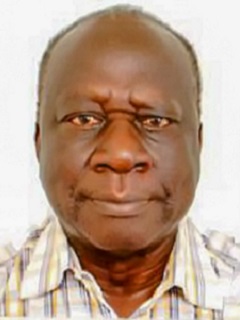
Attainment of food security remains one of the biggest challenges facing sub Saharan Africa. The continent continues to experience low production as a result of the low and declining soil fertility and land degradation, which have been compounded by unfavorable climatic conditions. Since the 1960s, there have been effort to transform the agricultural sector through promotion of diverse approaches of soil nutrient management. Research has demonstrated the potential and importance of fertilizers to boost food production. Unfortunately, fertilizer use in sub-Saharan Africa is only about one tenth of the world average. There is significant scope for improving productivity through judicious use of fertilizers. The objective of this presentation is to contribute to the debate on the role of fertilizer in improving food production in sub Saharan Africa. The presentation will discuss the changes in paradigm in soil fertility management in Africa, the productivity of soils in the continent and the key soil fertility management technologies susceptible of reversing the low food productivity that characterizes smallholder farming systems in Africa. The presentation concludes by presenting new research opportunities for improving soil fertility and boosting food production through sound fertilizer management, and by calling for the need for transformation of the fertilizer sector.
Fatiha Charradi is an Intrapreneur, an experienced leader and a passionate advocate for entrepreneurs and farmers. In 2016, Fatiha was selected to participate in the Regional Entrepreneurship Acceleration Program (REAP) of the prestigious MIT University to contribute to the emergence of strong entrepreneurial ecosystems in different regions of Morocco. In 2014, Fatiha was identified by the Choiseul Institute among Young African leaders of 40 years and under, who will play a major role in the development of Africa in the near future. As an intrapreneur, Fatiha spent 19 years in major Moroccan and multinational companies. Fatiha is currently Vice President in charge of Agricultural Development- Domestic Market in OCP Group. In 2011, she was appointed Chief Executive Officer of the OCP Fund for Agricultural Innovation. In 2008, Fatiha joined OCP as a key resource in the Chairman’s office In 2005, Fatiha joined the Altadis group for the development of the e-business market on the national distribution network. After a first experience in the banking sector at Wafabank, she joined Alcatel in 2001 group for the promotion of voice& data solutions in Morocco and elsewhere. ICT Engineer from “Ecole Mohammadia des Ingénieurs” ( 2000), Fatiha Charradi holds an MBA from École Nationale des Ponts et Chaussées in Paris (2008), a Certificate in Strategic Management and Geopolitics from HEC Paris (2011) and Certificates in Executive Management and Leadership from MIT in 2014 and 2018. Fatiha Charradi is also a board member of many national and international institutions, a board member of H-Seven, an African Accelerator (https://www.hseven.co/), a Non Excecutive Director of iSDA (Innovation solutions for Decision Agriculture, https://www.isda-africa.com/ ), a member of the Scientific Advisory Committee of APNI (https://www.apni.net/) and an active member in many local NGOs and social initiatives.
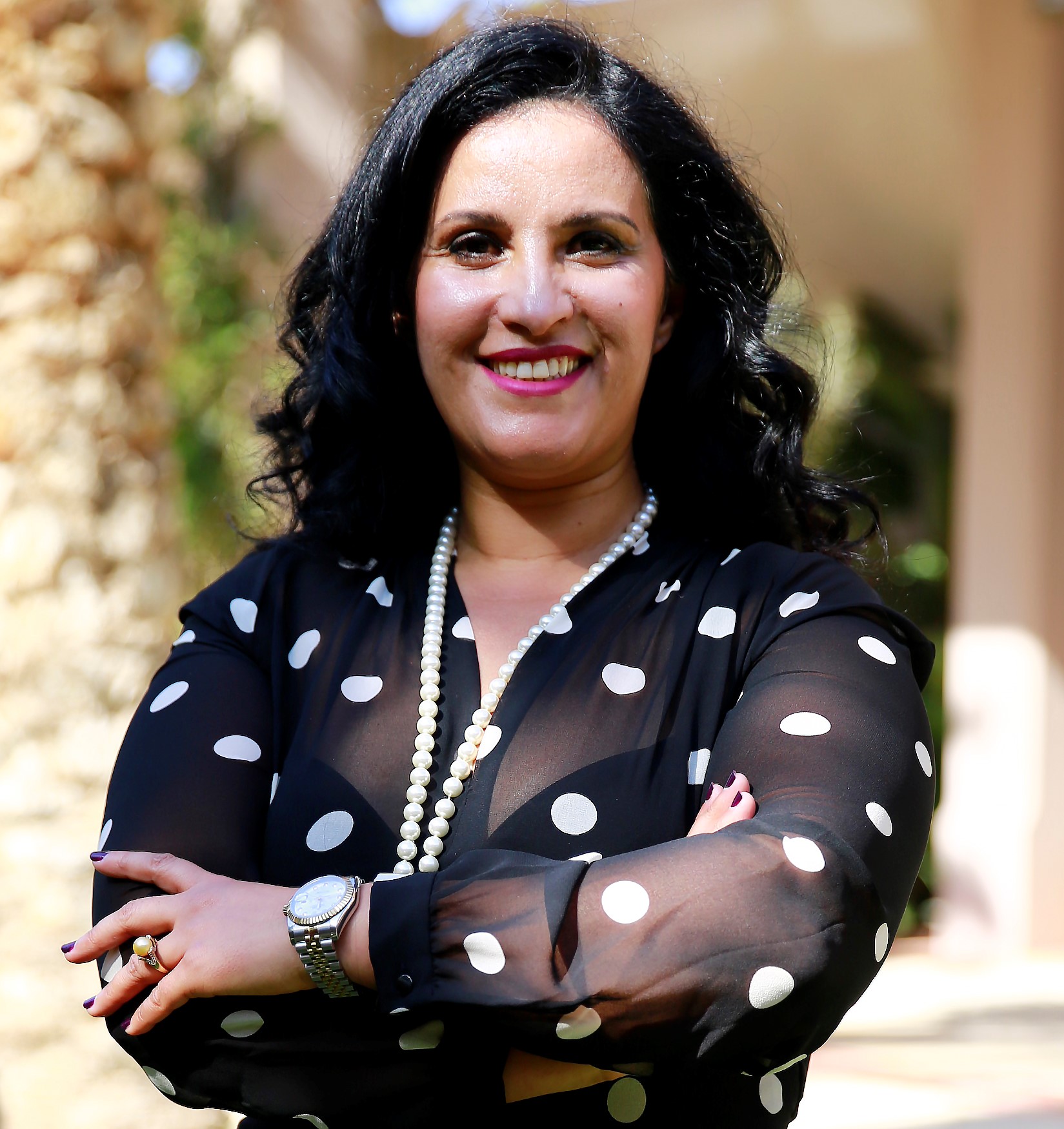
Claire is CEO and Founder of Producers Direct. Producers Direct is an award-winning enterprise led by farmers for farmers - focussed on designing farmer-led solutions to the challenges faced by smallholder farmers worldwide. To-date, this has improved livelihoods for over 1 million small-scale farmers across East Africa and Latin America. Producers Direct delivers a range of farmer-led services in-person and digitally, focussed on four key areas: 1) Training & Information Services; 2) Access to Financial Services, 3) Market Access and 4) Access to data to support farmers take smarter farming decisions. International recognition for our work has included UK Google Impact Challenge winner, World Bank Collaborative Data Innovations, GBBC 2019 Scaling Impact for the UN SDGs Zero Hunger winner and most recently, 2020 WFP Innovation Accelerator awardee for Digital Cooperatives - a pioneering platform applying innovation in blockchain technology to replicate the benefits of traditional farming cooperatives to improve incomes and food security for smallholder farming families, especially women farmers.
Before joining Producers Direct, Claire worked with a number of organizations promoting the leadership of small-scale farmers within international development processes. This included seven years with the US-based non-profit Ecoagriculture Partners, the United Nations Development Programme, the Bill & Melinda Gates Foundation, and DFID.
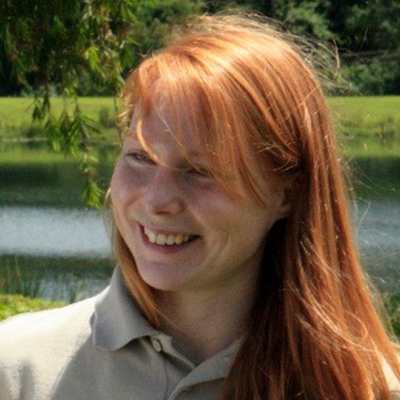
Producers Direct is an international non-profit led by smallholder farmers for smallholder farmers. With over a decade of experience in farmer-led design and experimentation, Producers Direct has piloted and scaled a number of in-person and digital solutions that have improved the livelihoods for over 1 million small-scale farmers across East Africa and Latin America to-date. International recognition for our work has included UK Google Impact Challenge winner; World Bank Collaborative Data Innovations and the CGIAR Big Data Platform's 2020 Inspire Challenge winner. As Producers Direct CEO and Founder, Claire will share lessons learnt from Producers Direct's experiences in farmer-led design to-date and reflect on what may, or may not, lead to impactful investments in farmer-led design, experimentation and knowledge sharing processes.
She is a widely respected and recognized development professional and private entrepreneur with more than 30 years of international experience in economic development, food security & nutrition and women economic empowerment. She is an innovative strategic thinker with strong analytical skills. Her strength is in managing resources and building resilience while developing and inspiring cohesive teams. Her career in development include World Bank, IFPRI UNICEF, UNIDO, IFAD and WFP.
Ms. Gakuba’s major fields of expertise are entrepreneurial skills development, food security & nutrition, women in development and industrialization, economic transformation, rural enterprise development, export diversification and business development in post-conflict environment.
She is a multilinguist and particularly skilled at negotiations, with a proven ability to work under harsh conditions. She is very passionate about issues related to women in agribusiness and economic empowerment.
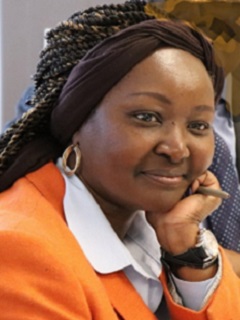
KWAME is currently a Senior Scientist at the African Plant Nutrition Institute in Morocco. He has also been a Professor(Soil Fertility) at the University of Cape Coast for over 20 years with a research focus on Biochar, Precision Agriculture, and Integrated Soil Fertility Management. Kwame possesses a PhD in Plant and Soil (Aberdeen, Scotland) and, MSc. In Physical Land Resources (Ghent, Belgium), an MSc in Precision Agriculture (Univ. of Mohammed VI, Morocco), and a BSc in Agriculture (Kwame Nkrumah Univ. of Science &Technology, Ghana). Kwame has been a visiting scholar at Rothamsted Research, England, Ruhr University of Bochum, Germany, CINADCO, Israel, Norman Borlaug, Ohio State University, and Harper Adams University (England). Furthermore, he has undertaken several international projects and consultancies funded by organizations such as DANIDA (Denmark), DFG (Germany), EU Horizon 2020 (EU), Intra-Africa Mobility (EU), OCP (Morocco), UM6P (Morrocco), GCRF (UK), Feed the Future (USAID), RUFORUM, and many consultancies.
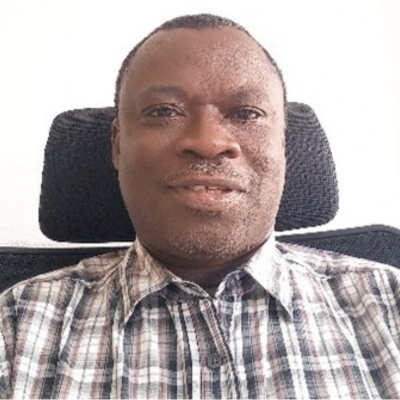
Smallholder farmers contribute significantly to food security and rural livelihoods in Africa, but their yields are often low due to declining soil fertility, high input costs, and decreased availability of land for cultivation among other factors. These challenges are exacerbated by climate change. Furthermore, soil physicochemical and biological properties are heterogeneous among farms within same or different agro-ecological zones, with obvious consequences for yields. This variability is also associated with labour, income, production orientation, cultural norms and wealth distribution. Given the challenges and variability, smallholder farmers in Africa must adopt precision agriculture (PA) systems that ensure low input use, high efficiency and sustainable productivity. PA adoption is still low in Africa due to low awareness levels of PA technology, limited access to sources of information and data, insufficient and low quality of information and data, lack of technical knowledge and high cost of the technology. PA methods and tools can be leveraged to provide benefits to both farmers and society through increasing production efficiency and environmental stewardship in smallholder farming systems. However, as easy as it sounds, the reality is that the digital transformation of SSA agriculture is still a few years away. Therefore, the path forward is increased awareness, education and research driven by pragmatic national policy, capacity building and financial commitments